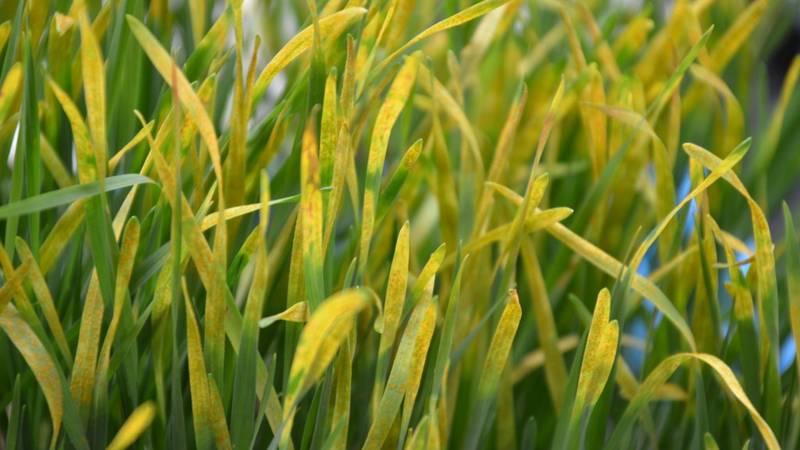Tackling the threat of rust disease

A research facility is helping countries fight wheat rust diseases – and the threat they pose to wheat yields and food security.
Although wheat rust disease is well known, the situation and threat are fundamentally different today. Changes in temperature and rainfall patterns have promoted the emergence of new races of rust that are increasingly overcoming the defenses of rust-resistant wheat varieties.
The possibility of a serious stripe rust pandemic that devastates millions of hectares (ha) of wheat production is therefore more than a ‘scenario’ — it is a looming possibility. The disease may be widespread and dispersed in large wheat growing regions, and it presents an uncertain and changing genetic target for crop researchers and agricultural planners.
The ‘Regional Cereal Rust Research Center’ in Turkey, however, marks a significant milestone in global efforts to contain the threat of rust diseases. A partnership with Turkey’s Ministry of Food, Agriculture and Livestock, the facility offers enhanced support to breeding programs, regional cooperation on rust monitoring systems, and capacity building opportunities.
The Rust Research Center provides an important addition to ICARDA’s ongoing efforts to combat the spread of rust diseases, which includes strategic advice, scientific support for decision making, and the fast-track development of improved rust-resistant wheat varieties.
Wide-ranging support
The new Center offers rust-vulnerable countries scientific expertise and services to identify and track wheat rust diseases: screening crop varieties for resistance to rust and providing advice on crop varieties that offer resistance to rust diseases in specific agro-climatic conditions. In the future it is hoped that the Center will also be able to analyze rust samples sent by affected countries to identify rust races and virulence to specific crop varieties.
Researchers can also assist in the utilization of molecular markers for the development of rust-resistant cultivars, and help improve understanding of the pathogenic variability of races. A bio-safety facility ensures that the Center can safely receive plant and disease materials for screening and evaluation. There are also new sophisticated planters that can facilitate and expand the precise planting of large numbers of wheat genotypes for field assessments.
A strategic location
The Center is conveniently located in Izmir, at the center of the ‘Wheat Belt’ linking Southern, East and North Africa with West, Central and South Asia. The ‘Wheat Belt’ provides more than 30% of the world’s wheat. In addition, Turkey’s Mediterranean climate provides optimal conditions for the evaluation of regional and international plant genetic material for both winter and spring wheat against rust diseases.
“As the threat of rust diseases grow, the Center has come at an opportune time,” says Mesut Keser, ICARDA’s Country Manager for Turkey. “It combines strategic advice, monitoring systems, and evaluations that are vital to the development of rust-resistant varieties – a robust and practical defense for farmers exposed to the threat of rust diseases.”
